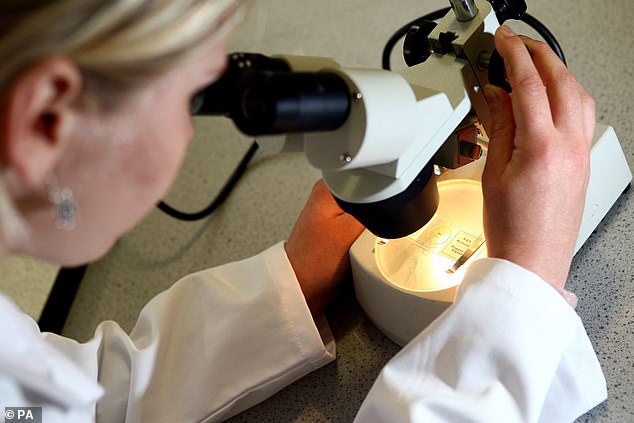Patients with suspected bowel disease could soon refer themselves for screening, saving them months of waiting with agonizing symptoms.
Currently, patients with suspected Crohn’s disease or ulcerative colitis, collectively known as inflammatory bowel disease (IBD), must consult a GP before being referred to hospital for a diagnosis.
A GP will then ask them to undergo a faecal calprotectin test, which looks for proteins in the intestines linked to inflammation.
However, inflammation can also be a sign of diseases such as food poisoning, so patients should consult a specialist who will decide if they need a colonoscopy, a procedure to check the inside of the intestines.
Experts say this lengthy process can take months, which is concerning because studies show that the longer IBD patients wait, the more likely they are to suffer complications that require surgery.
Patients with suspected bowel diseases will soon be able to refer themselves for scans, saving them from having to endure months of painful symptoms.

A study has found that offering patients with suspected bowel disease two faecal tests can speed up referrals for colonoscopies by filtering out problems such as food poisoning.
But a study has found that offering patients two faecal tests, about two weeks apart, can accurately detect signs of IBD, meaning patients can be referred directly for a colonoscopy.
Study author Dr Peter Rimmer, a gastroenterologist at the University of Birmingham, says that in the future, patients could request faecal tests directly from the NHS without consulting a GP.
Around 800,000 people in the UK suffer from IBD. Approximately 500,000 people live with Crohn’s disease, a chronic disease in which part of the digestive system becomes inflamed.
Just under 300,000 suffer from ulcerative colitis, which affects the colon and rectum.
No condition can be cured, but symptoms can be controlled with medication. These tend to be more effective when given early.
The study involved 767 patients with IBD symptoms who were offered repeated fecal calprotectin tests in the weeks before a colonoscopy.
They completed a questionnaire about their symptoms to rule out other conditions. Two positive results were shown to strongly predict an IBD diagnosis.
Dr Rimmer said: “We believe our findings will open up the exciting possibility that patients can order a faecal test themselves rather than through a GP.”
“This could allow them to get a diagnosis in a matter of weeks.”

